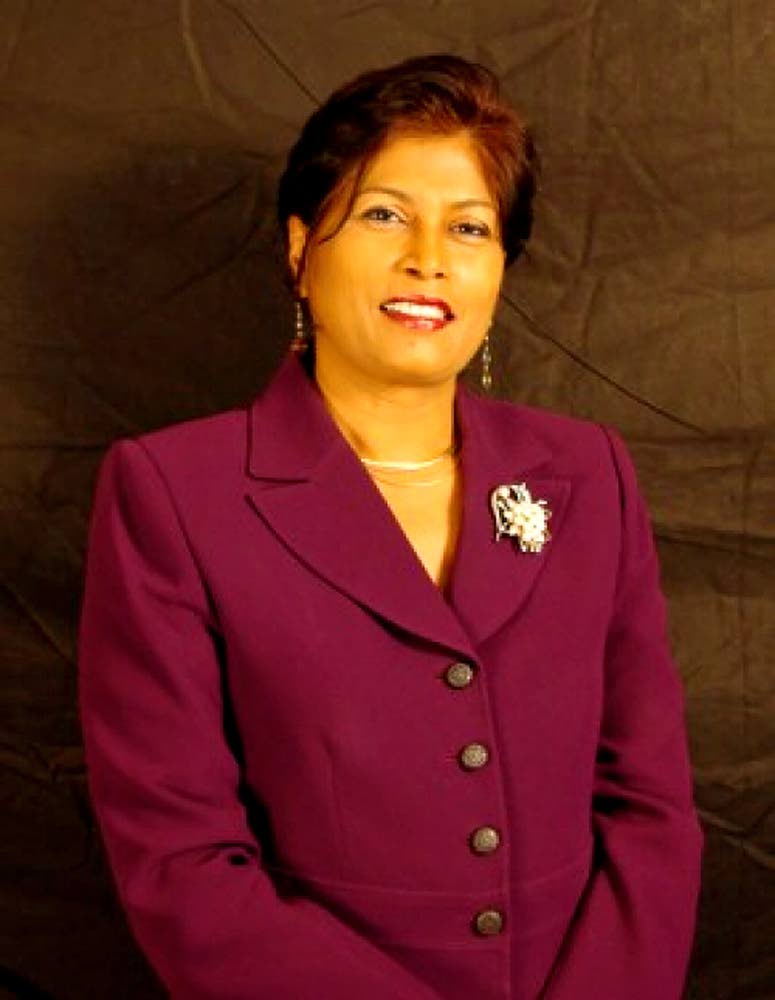Conquering new frontiers

A debate on the merits of artificial intelligence (AI) and emotional intelligence (EI) took centre stage on the first day of the 8th Annual International Finance and Accounting Conference hosted by the Institute of Chartered Accountants of TT (ICATT) at the Hyatt Regency Hotel and Conference Centre, Port of Spain, on Thursday.
Making individual presentations were Nigel Romano, chief executive officer and managing director, JMMB Bank, who advanced the case for AI; and Christine Sahadeo, former government minister and senior lecturer, University of the West Indies (UWI), St Augustine Campus, replied with a compelling argument extolling the virtues of EI.
The session, which examined the rubric #Connect – Exploring Intelligences, underscored the theme of the two-day conference: “New Frontiers - #newfrontiers #imagine #connect.”
Romano, who led off the session, said artificial intelligence was conceived in 1965. Tracing its history, he compared the Macintosh personal computer to Apple’s iPhone 10, noting that the iPhone was 305 times faster that the Mac. “The memory of the iPhone is over 23,000 times that of the Mac, and it is 83 per cent cheaper,” he said.
Romano contended: “Processor speeds or overall processing power for computers will double every two years, while their costs will drop by 50 per cent. This is what makes AI important. AI is taking over the world. You can answer questions through your smart-phone and GPS offers the fastest route to navigate to get to your destination.
“AI is anything that a computer can do that formerly was considered as a job for a human. Suddenly, computers can learn to see, hear and otherwise sense the world and begin to reason based on what they learn.”
The first three industrial revolutions which changed the world, Romano said, were driven by coal and steam, electricity and the automobile, and computing. “Now we are witnessing the rise of the fourth: an economy powered by the internet, automation and artificial intelligence,” he said. Concluding his argument, Romano conceded, though, that the world still needed emotional intelligence to maintain perspectives.
In her turn, Sahadeo cited five “major competencies” which contributed to emotional intelligence: self-awareness, self-regulation, motivation, empathy and social skills. She told her audience that those competencies were critical in making a “good or great” leader.
She said: “If you want to succeed in life as a person, a parent, a manager, a leader, it depends on how you impact on people’s life. Emotional intelligence is responsible for as much as 80 per cent of the success in our lives. EI is a way of recognising, understanding and choosing how we think, feel and act. It shapes our interaction with others and our understanding of ourselves.”
Many businesses, Sahadeo noted, often viewed emotions as being too personal or unquantifiable to talk about in a meaningful way. She contended, however, that research had shown that all great leaders were influenced by their emotions.
Earlier, ICATT president, Stacy-Ann Golding, appealed to the audience: “We dare you to imagine big and bold opportunities that can have significant impact on our industry and society. We consider the new frontiers that are presented to us as a consequence of ubiquitous change and the strategies we must adopt to make the most of them. This year our theme looks at what lies ahead for the profession and the social as well as economic environment in which we operate as a consequence of leaps in technology that enable us as well as challenge us.”
She said: “The conference will end where it all begins. Because, despite the hashtags, changes in the way we work and the new technologies that have emerged, some things remain constant, necessary and at our core – ethics and integrity. These characteristics are the bedrock of our profession which demands that our code of ethics and integrity be part of everything we do, wherever we are.”

Comments
"Conquering new frontiers"